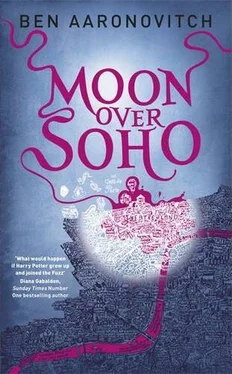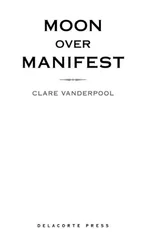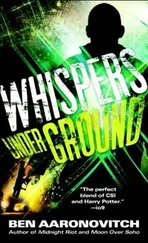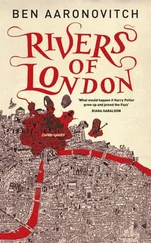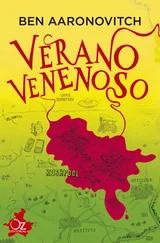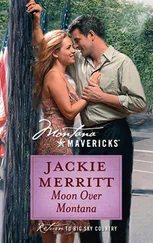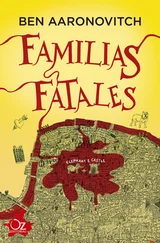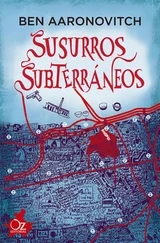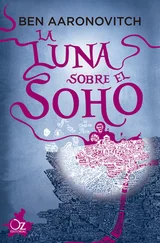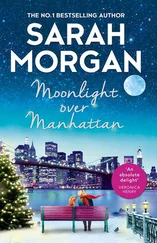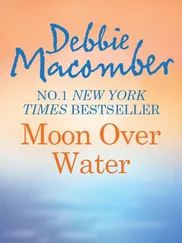But they never got their second bottle of champagne and the Canadians didn’t get their just deserts. Because at that point the band struck up “Body and Soul” and the girls only had eyes for Ken Johnson.
“Nobody had ever told me,” said Simone, “that a colored man could be so beautiful. And the way he moved — no wonder they called him Snakehips.” She frowned up at me. “You haven’t kissed me for ever such a long time.”
She pouted, so I kissed her. It was the single most stupid thing I’ve ever done, and that includes running into a tower block thirty seconds before it was due to be demolished.
Vestigium is usually hard to spot. It’s the uneasy feeling you have in a graveyard, the half memory of children laughing in a playground, or a familiar face in the corner of your eye. What I got from that kiss was a full-on high-definition reproduction of the last moments of Ken Johnson and forty-odd others at Café de Paris. I didn’t get to enjoy the ambience much. Laughter, uniforms, a live swing orchestra at the height of its power, and then — silence.
During the Renaissance, when there was a flowering of art, culture, and almost continuous bloody warfare, some particularly foolhardy engineers would break sieges by rushing up to the castle and attaching a primitive-shaped charge to the gate. Sometimes, because fuses were more of an art than a science in those days, the charge would go off before the luckless engineer had gotten clear and he would be blown, or “hoisted,” through the air — often in bits. The French, with that subtle rapier wit that has made them famous, nicknamed the bombs “petards” or farts. People still use the phrase hoisted by his own petard to refer to a situation where one is damaged by one’s own scheme. Which is what happened to me when I guided Simone back into her memories, and she proceeded to suck my brains out.
You don’t experience a bomb blast so much as remember it afterward. It’s like a bad edit or a record jumping a groove. On one side of the moment there is music and laughter and romance and on the other — not pain, that comes later, but a stunned incomprehension. A tangle of dust and splintered wood, a splash of white and red that becomes a man’s dress shirt, tables overturned to reveal bodiless legs and headless bodies, a trombone minus its slide standing upright on a table as if left there by a musician while two men in khaki uniforms stared blindly at it — killed by the blast wave.
And then noise and shouting and the taste of blood in Simone’s mouth.
My blood, I realized — I’d bitten my lip.
It was Simone who pushed me away.
“How old am I?” she asked.
“I make it a shade short of ninety,” I said, because there’s just no stopping my mouth sometimes.
“Your mother was right,” she said. “I am a witch.”
I found I was swaying and my hand was shaking. I held it up in front of my face.
“She was right,” she said. “I’m not a person, I’m a creature, an abomination.”
I tried to tell her that she was definitely a human being and that some of my best friends were functionally immortal. I wanted to say that we could work it out, but it came out as a series of wah sounds like Charlie Brown’s teacher.
“I’m sorry,” she said. “I have to go and talk to my sisters.” She gave a bitter little laugh. “Only they’re not my sisters, are they? I’m Lucy, we’re all Lucy Western.”
She turned and ran out of the coach house. I heard her heels clanging down the spiral staircase. I tried to follow but toppled slowly onto my face instead.
“THAT WAS not the most intelligent thing you’ve ever done,” said Nightingale as Dr. Walid shone a light in my eyes to make sure my brains were intact. I’m not sure how long I’d flopped around on the floor of the coach house, but as soon as I’d gotten enough muscle control to use a phone, I’d called Dr. Walid. He was calling it an atonic seizure because, even if he didn’t know why it had happened, it was important to give it a cool name. I’d been hoping that I’d have a chance to come up with a plausible explanation before Nightingale arrived, but he came in just behind Dr. Walid.
“I had to be sure she was related to the Café de Paris case and not the Strip Club of Dr. Moreau,” I said. “I mean, she’s not a chimera like the Pale Lady. In fact, I think she’s an accident.” I explained about Miss Patternost and her musical shapes.
“You think that their ‘shapes’ acted like forma ?” asked Nightingale.
“Why not?” I asked. “I used to make shapes when I was going to sleep when I was a kid, or listening to music. Everyone does it and among billions of people, no matter how unlikely something is, if you repeat the action enough times there’s a result — there’s magic. How else could Newton stumble onto the principle in the first place. They were the wrong girls doing the wrong thing in the wrong place and …”
“And what?” asked Dr. Walid.
“I think they survived the blast at the Café de Paris because they channeled magic, or life energy, or whatever this stuff is, through the forma in their minds. We know that magic can be released at the point of death — hence sacrifices.”
“Hence vampires,” said Nightingale.
“Not vampires,” I said. I’d been studying my Wolfe. “ Tactus disvitae , the antilife, is the mark of the vampire. This is more like alcohol or drug dependency; the damage is an unintended consequence, like cirrhosis of the liver or gout.”
“Human beings are not bottles of brandy,” said Nightingale. “And Wolfe always was too keen on categorizing and subcategorizing everything. A rose by any other name and all that. Still — where would she have gone?”
“Most likely the flat on Berwick Street,” I said.
“Back to the nest,” said Nightingale. And I didn’t like the way he said it.
Dr. Walid handed me a couple of painkillers and half a bottle of Diet Pepsi he must have found in the fridge. There was no fizz when I unscrewed the top and it tasted flat when I swallowed the tablets — it must have been in there for ages.
He sat down next to me on the sofa and put his hand on my arm. “If your father really did have a close encounter with Simone at some point in the past we may be able to find evidence of that. So I want you to bring your father to the UCH tomorrow at eleven,” he said and then pointed at Nightingale. “You I want in bed in the next half hour with a hot milk and a sleeping tablet.”
“There’s — ” said Nightingale but Dr. Walid didn’t give him a chance to start, let alone finish.
“If you don’t follow my instructions, I swear on my father’s life that I’ll have you both put on medical leave,” he said. “Do you both ken me on this?” We nodded obediently.
“Good,” he said. “I’ll see you tomorrow.”
Later, while we were wrangling hot drinks out of Molly in her kitchen, Nightingale asked me if I thought Dr. Walid actually had the authority to carry out his threat. “I think so,” I said. “He’s down on paper as our OCU’s registered medical adviser. If we had any cells here he’d be the one we called in if our prisoners needed medical attention. Do we have any cells?”
“Not anymore,” said Nightingale. “They were all bricked up after the war.”
“In any case,” I said, “I vote we don’t push to find out how far his authority extends.”
Molly reverentially handed a mug of hot chocolate to Nightingale. “Thank you,” he said.
“What about mine?” I asked.
Molly held up Toby’s lead and wagged it at me.
“Not me again?”
“I’m on bed rest,” said Nightingale. “Doctor’s orders.”
Читать дальше
